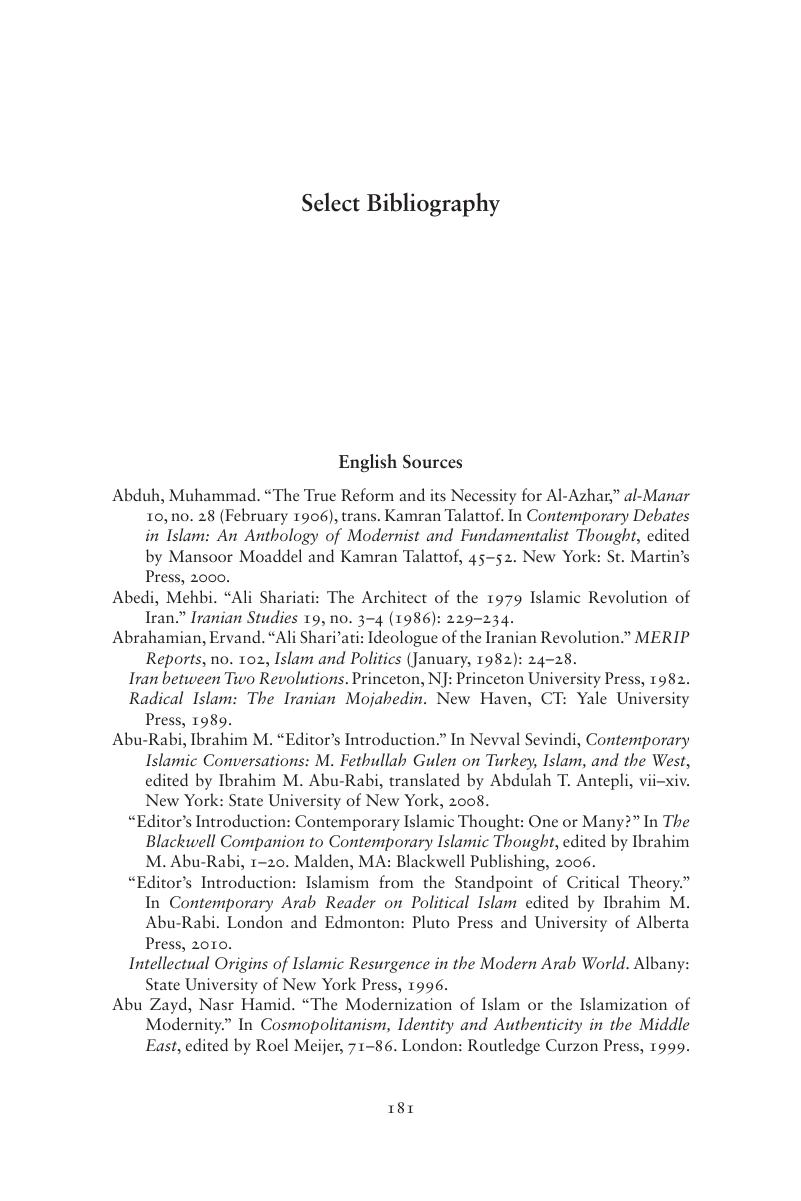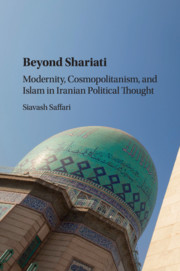Book contents
- Beyond Shariati
- Beyond Shariati
- Copyright page
- Contents
- Introduction
- 1 Postrevolutionary Readings of a Revolutionary Islamic Discourse
- 2 Islamic Thought in Encounter with Colonial Modernity
- 3 A Postcolonial Discourse of Public Religion
- 4 The Enlightenment Subject and a Religiously Mediated Subjectivity
- 5 Orientalism, Occidentalism, and the Civilizational Framework
- Conclusion
- Select Bibliography
- Index
- References
Select Bibliography
Published online by Cambridge University Press: 09 March 2017
- Beyond Shariati
- Beyond Shariati
- Copyright page
- Contents
- Introduction
- 1 Postrevolutionary Readings of a Revolutionary Islamic Discourse
- 2 Islamic Thought in Encounter with Colonial Modernity
- 3 A Postcolonial Discourse of Public Religion
- 4 The Enlightenment Subject and a Religiously Mediated Subjectivity
- 5 Orientalism, Occidentalism, and the Civilizational Framework
- Conclusion
- Select Bibliography
- Index
- References
Summary

- Type
- Chapter
- Information
- Beyond ShariatiModernity, Cosmopolitanism, and Islam in Iranian Political Thought, pp. 181 - 202Publisher: Cambridge University PressPrint publication year: 2017

